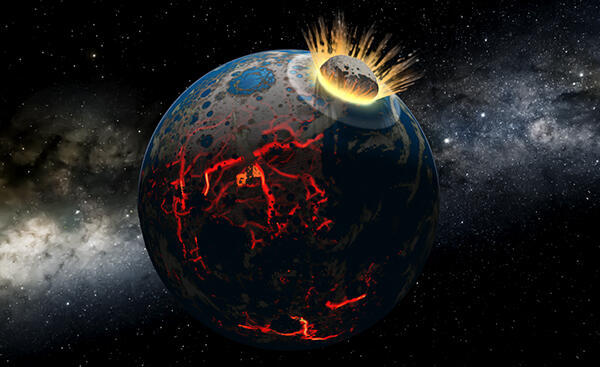Date:
Location:

Free Virtual Book Presentation
Simone Marchi, Staff Scientist, Southwest Research Institute
Advance Registration Required to watch on Zoom or attend in person.
Signs of ancient collisions are widespread in the solar system, from the barren, once-habitable Mars to rugged asteroids. In this talk, physicist Simone Marchi, discussing his recent book, Colliding Worlds (Oxford University Press, 2021), will explore the key role that collisions in space have played in the formation and evolution of our solar system, the development of planets, and possibly even the origin of life on Earth. Analyzing our current understanding of the surfaces of Mars, the Moon, and asteroids—drawn from recent space missions—Marchi will present the dramatic story of cosmic collisions and how we have come to understand them.
Visit the Oxford University Press to purchase Colliding Worlds.
To join the program, you will need to download the free Zoom app in advance. If you already have Zoom, you do not need to download it again. For details on how to improve your Zoom experience, visit the How to Attend an HMSC Program webpage.
About the Speaker
Dr. Simone Marchi is a staff scientist at Southwest Research in Boulder, Colorado. His interests cover the formation and geology of the terrestrial planets, the Moon, and asteroids. He is Deputy Project scientist for the NASA Lucy mission, and coinvestigator of the NASA Psyche mission, NASA Dawn mission, ESA BepiColombo, and ESA JUICE mission. Marchi won the international Farinella Prize and the NASA Susan Mahan Niebur Early Career Award for his studies of the impact histories of terrestrial planets and asteroids and the early evolution of the solar system. He is also the recipient of several NASA and ESA mission group achievement awards. He has published a trade book Colliding Worlds (Oxford University Press, 2021), and has authored more than 170 peer-reviewed scientific publications. He has an asteroid named after him by the International Astronomical Union: Asteroid 72543 Simonemarchi.

